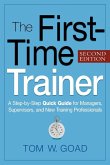This book documents an empirical study that examined the relationships between mentoring, goal orientation, and two dimensions of career success (i.e., objective and perceived success). Three demographics gender, marital status, and job level were also investigated to determine if they served as moderators. Data were collected via a survey questionnaire from a sample of 136 managers and senior executives working in manufacturing facilities in Malaysia. The findings indicated positive and significant relationships between mentoring and both the dimensions of success. However, goal orientation did not appear to significantly predict career success, be it objective or perceived success. Gender was found to moderate the relationship between mentoring and objective career success. Job level, on the other hand, was found to serve as a moderator for the relationship between goal orientation and perceived career success. The central implication of these findings is that in order to be effective in developing high-potential employees, organizations should first rightly identify success determinants in view of gender and success dimensions.








